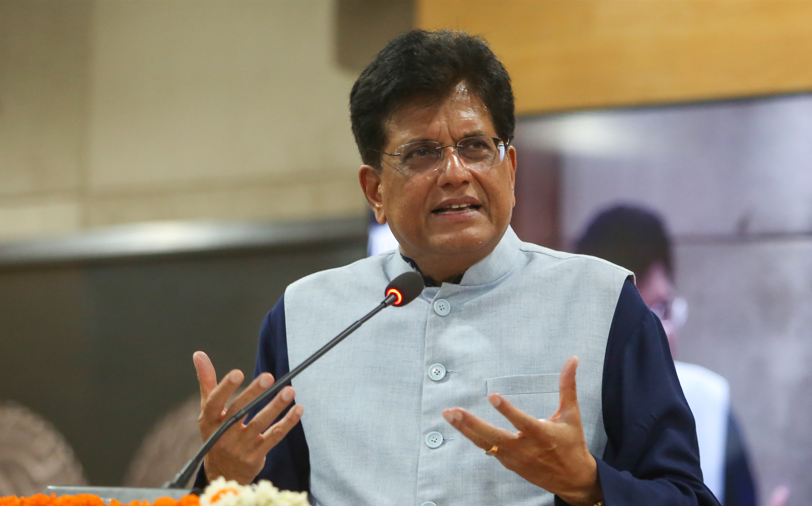Union Minister of Commerce and Industry Piyush Goyal on Wednesday chaired a high-level review meeting on the Production Linked Incentive (PLI) Scheme, underlining its critical role in making India “Aatmanirbhar” in the manufacturing sector. During the meeting, held with representatives from all concerned ministries, Goyal emphasized that India must focus on sectors where it holds a competitive edge globally and proactively address the challenges faced by various stakeholders to boost the country’s exports.
Highlighting the need for self-reliance in the key sectors covered under the PLI Scheme, Goyal stressed the importance of building quality skilled manpower over quantity. He urged ministries to work in collaboration with the National Industrial Corridor Development Corporation (NICDC) to resolve infrastructure bottlenecks. The minister also called for a well-defined roadmap for the next five years, both in terms of attracting investment and disbursing incentives under the scheme.
The PLI Scheme, currently at various stages of implementation across 14 key sectors, has attracted investments worth ₹1.76 lakh crore and generated production and sales exceeding ₹16.5 lakh crore. This, in turn, has created over 12 lakh direct and indirect jobs as of March 2025. So far, a cumulative incentive of ₹21,534 crore has been disbursed under the scheme across 12 sectors including large-scale electronics manufacturing, IT hardware, bulk drugs, medical devices, pharmaceuticals, telecom and networking products, food processing, white goods, automobiles and auto components, specialty steel, textiles, and drones and drone components.
The impact of the scheme has been significant in driving domestic manufacturing, creating employment, increasing exports, and fostering innovation. In the pharmaceutical drugs sector, the scheme has generated cumulative sales worth ₹2.66 lakh crore, including ₹1.70 lakh crore in exports within the first three years. In FY 2024-25 alone, eligible product exports stood at ₹67,000 crore—around 27 per cent of the country’s total pharma exports. Notably, 40 percent of the total investment in the sector, amounting to ₹15,102 crore, has been directed towards research and development. As of March 2025, the domestic value addition in the pharmaceutical sector stood at an impressive 83.7 per cent.
In the bulk drugs sector, the PLI Scheme has played a transformative role by enabling India to become a net exporter of bulk drugs, with exports worth ₹2,280 crore in FY 2024-25, a reversal from the net import position of ₹1,930 crore in FY 2021-22. This shift has significantly reduced the gap between domestic manufacturing capacity and the demand for critical drugs.
The food processing sector has also seen strong results, reporting investments worth ₹9,032 crore, which have resulted in production and sales of ₹3,80,350 crore and generated employment for 3,40,116 people. The scheme has encouraged the use of domestically grown agricultural products, thereby benefiting rural and underdeveloped areas and supporting farmers’ incomes. A majority of the beneficiaries are MSMEs, with 70 MSMEs directly enrolled and 40 more serving as contract manufacturers for larger firms. The value-added marine product segment has seen sales grow at a CAGR of 22 per cent during the PLI period. Additionally, the launch of the PLI Millet Scheme has led to a 25-fold increase in the sales of millet-based products in FY 2024-25 compared to the base year of FY 2020-21. Millet procurement by PLI beneficiaries increased from 4,081 metric tonnes in 2022-23 to 16,130 metric tonnes in 2024-25, boosting rural household incomes.
In the textiles sector, exports of Indian man-made fibre (MMF) textiles reached US$ 6 billion in FY 2024-25, up from US$ 5.7 billion in the previous fiscal year. Exports of technical textiles also increased significantly, rising to US$ 3,356.5 million in FY 2024-25 from US$ 2,986.6 million in FY 2023-24.










